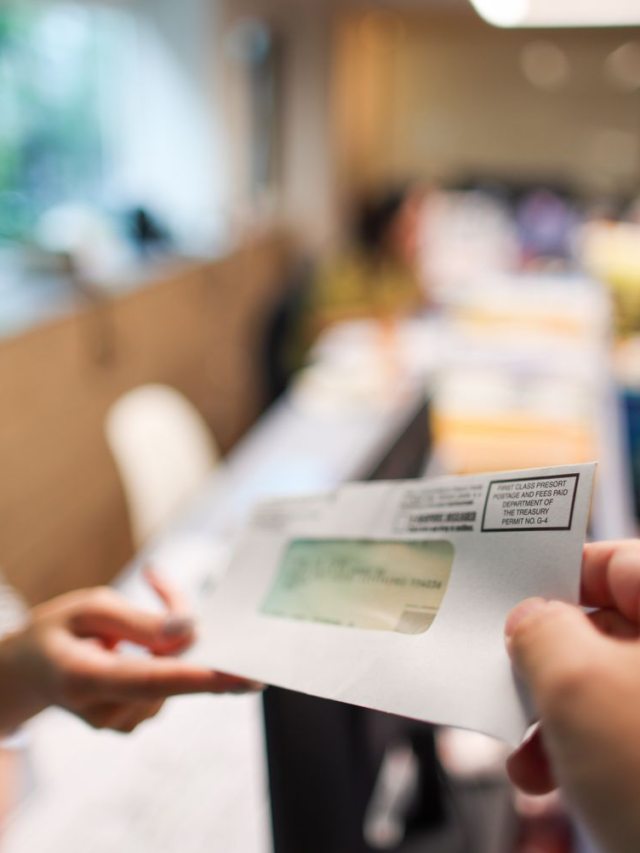On a clear day last July in Miami, Peter Navarro emerged from four months in federal prison, where he’d been imprisoned for contempt of Congress. Mr. Navarro had refused to testify in an investigation of the Jan. 6 attack on the Capitol, an action he described as a defense of the Constitution.
Just hours after his release from prison, Mr. Navarro flew to Milwaukee to speak at the Republican National Convention in support of Donald J. Trump’s re-election.
“They convicted me, they jailed me. Guess what? They did not break me,” he said that night, punctuating each word as the crowd roared. It was an exercise in loyalty to Mr. Trump that seems to have paid off.
For much of Mr. Trump’s first term, Mr. Navarro, a trade adviser, had been sidelined, mocked and minimized by other officials who saw his protectionist views on trade as factually wrong and dangerous for the country.
But in the second Trump administration, Mr. Navarro, 75, an economist and trade skeptic, has been newly empowered. He returned to government more confident in his revanchist vision for the American economy, more dismissive of his critics, and with more than a dozen trade-related executive orders already drafted, many of which the president has since signed. Mr. Trump also came back to Washington more determined to finally realize the trade views he has held for decades, that an unfair trading system was ripping America off and needed to be radically changed.
As the 100-day mark of the president’s term approaches, Mr. Navarro has already helped Mr. Trump roll out half a dozen major trade moves. These steps have brought tariffs to levels not seen in a century, in an attempt to curb American dependence on imports and force factories back to the United States. Two people with knowledge of the administration’s deliberations said Mr. Navarro was the likely origin of a controversial formula the White House used for calculating tariff rates based on U.S. trade deficits.
For more than 20 years, Mr. Navarro, who studied economics at Harvard and was once a Democrat, has been proclaiming the harm that other countries, and particularly China, have caused American workers.
Mainstream economists have some sympathy for Mr. Navarro’s view of how globalization destroyed millions of American manufacturing jobs and ravaged some communities. But they have serious criticisms of the tariffs, believing they will backfire on the economy by raising prices and slowing growth.
Edward Alden, a senior fellow at the Council on Foreign Relations, who studies trade, said Mr. Navarro “may be the worst trade adviser any modern U.S. president has ever had.”
Mr. Alden said that many of Mr. Navarro’s analyses — like how China and other countries had adopted unfair trade policies — had merit. But he said that Mr. Navarro had reinforced the president’s worst tendencies and fueled “chaotic tariff policies that are harming the American and global economies.”
“He has enabled the president to turn the United States from the world’s economic leader into a rogue nation,” Mr. Alden said.
Mr. Navarro declined to be interviewed for this article. In a statement, he said he was carrying out Mr. Trump’s directives and vision, and that “going to jail was not just a demonstration of loyalty to the president but loyalty to the Constitution.”
Mr. Navarro also derided mainstream economists who opposed the Trump agenda as “the same damn fools who supported NAFTA, China’s entry into the W.T.O., and every other trade deal that was supposed to benefit America but only benefited Wall Street and the foreign nations screwing us. Those mainstream economists need to get out more often — maybe to Ohio or North Carolina or Pennsylvania or Wisconsin or Michigan,” he said.
Kush Desai, a White House spokesman, called him “an invaluable asset” and said, “Peter Navarro was decades ahead of mainstream ‘experts’ on how China’s unfair trade policies are undermining American workers.”
The Trump administration remains publicly unified around imposing significant tariffs, but some advisers are growing more worried about economic damage. Earlier this month, Mr. Navarro publicly sparred over the tariffs with Elon Musk, who he dismissed as “a car assembler,” not a “car manufacturer.” Mr. Musk responded that the trade adviser was “dumber than a sack of bricks,” later adding that the comparison was “unfair to bricks.”
Mr. Navarro — part crunchy California academic, part pugnacious MAGA attack dog — is accustomed to insults. He has long been a punchline among Washington lobbyists, think tank experts and economists, who have cringed at his ideas and mocked him for his quirks, like inventing a fictitious expert named Ron Vara (an anagram of Navarro) he quoted in his books.
“It’s like appointing someone who believes the world is flat to be in charge of NASA,” said Bryan Riley, the director of the Free Trade Initiative at the National Taxpayers’ Union, a conservative lobbying group.
But Mr. Navarro, a college professor of relatively modest means in an administration full of billionaires, seems driven purely by ideology and mission, not by a desire for money or acclaim. And he believes his ideas have already been vindicated.
“The academic community can’t be trusted to critique Trump economics,” Mr. Navarro said in an interview in January with The New York Times. “And they have a credibility problem because they’ve been crying this wolf. They did it all through the first term,” he said. “We’re right. They’re wrong. End of story.”
Richard Grenell, a former Trump administration official and the interim president of the Kennedy Center, said that the United States had to take action to expand its manufacturing base, and that Mr. Navarro was “completely focused” on that mission.
“If we don’t squeeze these other countries, we’re not going to be able to make anything; we’re just going to be a nation that consumes. And that will mark the end of us,” he said.
“Half the country, or maybe a little more than half the country, is conservative or Republican,” Mr. Grenell said. “And they love what Peter Navarro stands for.”
“A small speck in a sea of humanity”
About 90 miles north of the Miami prison where he would do his jail time, Mr. Navarro experienced some of the happiest moments of his childhood. His father played clarinet and saxophone in a house band that wintered in Florida. The young Mr. Navarro would sell coconuts and avocados, and ride his bike past Mar-a-Lago and miles of pristine beaches.
His parents divorced, leaving him and his mother, who worked as a cashier and later a manager at Saks Fifth Avenue, without much money. Mr. Navarro was a good student, and went to Tufts University on a scholarship. Curious about the world, he joined the Peace Corps and went to Thailand, traveling to Laos, South Korea, Japan, India, Burma and Malaysia during his holiday breaks.
“It just makes you humble,” Mr. Navarro said in an interview with The Times in February. “You’re a small speck in a sea of humanity.”
Mr. Navarro went on to earn a Ph.D in economics from Harvard. He believed in the benefits of free trade, and in 1984, he published his first book, which featured a chapter defending it. (“I drank the Kool-Aid,” he said in the January interview.)
He taught business and economics, first in San Diego and then at the University of California, Irvine, where he became a tenured professor and worked for more than 20 years. He spent his nights lecturing and his days writing books (“Big Picture Investing” and “If It’s Raining in Brazil, Buy Starbucks”) and appearing as a commentator on TV.
He wrote for well-regarded economic journals and coauthored a paper with someone who went on to win a Nobel Prize. A lover of fresh air and exercise, he also swam, biked and paddle-boarded, and competed in triathlons.
Mr. Navarro was also interested in politics. An environmentalist and social liberal, he ran for office repeatedly as a Democrat, and spoke at the 1996 Democratic National Convention. He also ran for San Diego mayor, in a campaign that was focused on blocking big developers.
It was China’s entry into the World Trade Organization in 2001 that flipped a switch for Mr. Navarro, on both the Democratic Party and his profession.
In the early 2000s, Mr. Navarro said, his U.C. Irvine students were starting to unexpectedly lose their jobs, and he began zeroing in on China’s effects on trade. Mr. Navarro assigned his students to research how the Chinese were able to price their products more cheaply than the rest of the world.
His key finding was that it wasn’t just cheap labor driving prices, but a suite of predatory trading practices, including export subsidies, currency manipulation and a lack of protections for workers and the environment.
Those ideas fed into a trio of books he wrote on China. One of them, “Death by China,” which he wrote with Greg Autry and published in 2011, was made into a documentary narrated by Martin Sheen. In the film, Mr. Navarro interrogated corporate lobbyists from behind the camera, and commiserated with labor unions about how offshoring hurt American workers. The film was skewered in the press as hyperbolic, but it won an endorsement from Mr. Trump, who called it, “right on.”
Robert C. O’Brien, Mr. Trump’s former national security adviser who is a longtime friend, said Mr. Navarro had always cared about working people, despite being a coastal college professor.
“He really had that in his bones, that folks in the Rust Belt got a really raw deal,” Mr. O’Brien said. “He intrinsically understood that China was eating our lunch.”
“Where’s my Peter?”
Mr. Navarro said his first contact with the future president came after a 2011 blog post in the Los Angeles Times that described Mr. Trump giving an interview to the Chinese press, in which Mr. Trump supposedly rattled off his 20 favorite books on China. Mr. Navarro’s “The Coming China Wars” was among them.
There are reasons to doubt whether Mr. Trump ever gave such an interview — Richard McGregor, the author of another book on that list, said he believed the blog post’s content was fake, and the original Chinese article cannot be found — but the item still prompted Mr. Navarro to exchange messages with Mr. Trump.
Mr. Navarro was an adviser to the 2016 campaign, and protectionist rhetoric resonated deeply with Mr. Trump’s base. After Mr. Trump won, Mr. Navarro was promised a prestigious position as head of the National Economic Council, he wrote in a 2022 book, “Taking Back Trump’s America.”
Instead, the position was given to Gary Cohn, the former president of Goldman Sachs, and, in Mr. Navarro’s description, a “globalist,” who would become his nemesis. Mr. Navarro was appointed to lead the newly created National Trade Council, but it was given almost no resources.
Mr. Cohn and others in the administration saw Mr. Navarro’s proposals, from withdrawing from NAFTA to levying stiff tariffs, as harmful. They worked to subvert him with a series of bureaucratic blocks and humiliations, according to Mr. Navarro and other officials.
Mr. Navarro was required to report to Mr. Cohn and copy him on his emails. A strategy was deployed to stop Mr. Navarro from swooping into the Oval Office alone. Unlike other advisers, Mr. Navarro was not invited to speak at a weekly trade meeting, and would have to smuggle in his charts to give unscheduled presentations.
But Mr. Trump, who was also a trade skeptic at heart, would sometimes ask for Mr. Navarro in particular, saying, “Where’s my Peter?”
Shortly after Mr. Navarro, along with Wilbur Ross, the commerce secretary, succeeded in getting the president to impose tariffs on steel and aluminum, Mr. Cohn left the White House. But Mr. Navarro found others to clash with. He had some “pretty monumental battles” with Steven Mnuchin, the treasury secretary, in the Situation Room and the Oval Office over whether to negotiate in the U.S. trade war with China, Mr. O’Brien recalled.
Mr. Cohn declined to comment, while Mr. Mnuchin did not respond.
Mr. Navarro took on other projects. He saved a shipyard in Philadelphia that was about to go under by securing new Naval contracts for it. He traveled to Switzerland to reform an international mail treaty that had benefited Chinese exporters at the expense of U.S. taxpayers. And he played a major role in marshaling companies like General Motors, Honeywell and Abbott during the pandemic to produce masks, ventilators and Covid tests, as supply chains broke down and American hospitals ran short of supplies.
Wendell Weeks, the chief executive of Corning, said Mr. Navarro had worked with him to source glass vials as part of the government’s vaccine distribution effort.
Mr. Weeks called the program “one of the more amazing things I’ve seen the government do.” He said he continued to speak with Mr. Navarro about Corning’s efforts to manufacture solar panels, fiber optics, and pharmaceuticals in the United States.
The pandemic disruptions vindicated Mr. Navarro’s warnings about the risks of depending on foreign supply chains, particularly those that run through China.
But as the United States descended into the pandemic, Mr. Navarro became more enmeshed in conspiracy theories. He sparred with Anthony Fauci, the president’s former chief medical adviser, over using hydroxychloroquine for treating Covid, something Mr. Trump promoted and which Mr. Navarro continues to strongly support.
Mr. Navarro echoed Mr. Trump’s false claims that he won the 2020 election. And he defied the Congressional subpoena relating to the Jan. 6 riots at the Capitol, and was sentenced to jail. Upon his release, Mr. Navarro went directly to the campaign trail and campaigned for the president through Election Day.
There were few acts that could demonstrate Mr. Navarro’s loyalty to Mr. Trump more than serving jail time. At a rally in Greenville, N.C., in October, Mr. Trump praised Mr. Navarro, who sat in the audience, calling him “a strong voice on what you and I believe in.”
“Good job today. Good job forever,” the president told him.
Backlash
The question now is whether the tariffs can withstand the backlash they are provoking — and deliver anything like what Mr. Trump and Mr. Navarro have promised.
The Trump administration has imposed a tariff of at least 10 percent on nearly all products coming into the United States. It has put national security-related tariffs on steel, aluminum and automobiles, and opened investigations that could lead to tariffs on copper, lumber, semiconductors and pharmaceuticals. It introduced higher global tariffs on nearly 60 countries, which Mr. Trump then paused for 90 days to allow for negotiations.
Carmakers, electronics manufacturers, farmers and others have been pressuring the White House over the damage expected to be caused by tariffs. Small companies say they are at risk of going under.
In debates within the administration, some advisers, like Scott Bessent, the treasury secretary, and Kevin Hassett, the director of the National Economic Council, have argued for lower tariffs that could be used as leverage to open foreign markets, people familiar with the discussions say.
But Mr. Navarro has continued to push for a maximalist approach. While he has said the United States won’t make everything it needs by itself, he objects to tariff exemptions, even for things that aren’t produced in America. Mr. Navarro is cognizant that the political window for pushing through vast tariffs may be short, and he considers exclusions to be a slippery slope to having tariffs carved up by special interests, a person familiar with his thinking said.
Mr. Navarro may be losing that argument. The president was persuaded by turmoil in the bond markets to pause many of his global tariffs earlier this month. Mr. Trump also moved to exclude electronics from his China tariffs, and he has talked about other exemptions for industries like autos.
Amid the chaos, rumors have percolated that Mr. Navarro is on thin ice, though even some of his critics doubt he will be forced out.
On “Meet the Press” on Apr. 13, Mr. Navarro denied reports that he had been sidelined, and said the administration’s policy was still “no exemptions, no exclusions.” Everything, Mr. Navarro said, was going according to plan.
In an email this week to The Times, Mr. Navarro said the mainstream media’s description of chaos “ignores a strategy which has the United States negotiating with over 90 countries that have acknowledged their trade cheating.”
“It’s Trump three-dimensional chess and the nervous Nellies need to trust in Trump,” he added.
Many economists argue the tariffs are already chilling business investment and consumer spending, and backfiring on U.S. factories by raising their costs for raw materials and inputs.
And despite Mr. Navarro’s interest in helping working people, economists like David Autor of the Massachusetts Institute of Technology say the burden of tariffs will actually fall on poor people most, since they spend a larger share of their income on tariffed goods.
Mr. Autor said it was “hard to say many very positive things about this policy” and its ability to help the United States compete against China.
“We are punching our friends in the nose, tying our feet with tariffs and looking backwards at what we wish hadn’t happened, as opposed to what is immediately confronting us,” Mr. Autor said.
Mr. Navarro rejects those arguments. He maintains that tariffs do not increase prices, insisting they bolster productivity and cause foreign suppliers to cut their prices to maintain access to the U.S. market. He argues that other Trump policies, like deregulation, tax cuts and cheaper energy, will also juice the economy and keep inflation low.
“President Donald Trump has proven that tariffs work for the American people,” Mr. Navarro said in January. “It’s not going to be painful for America. It’s going to be a beautiful thing.”
Lisa Chow and Maggie Haberman contributed reporting. Li You contributed research. Audio produced by Adrienne Hurst.






